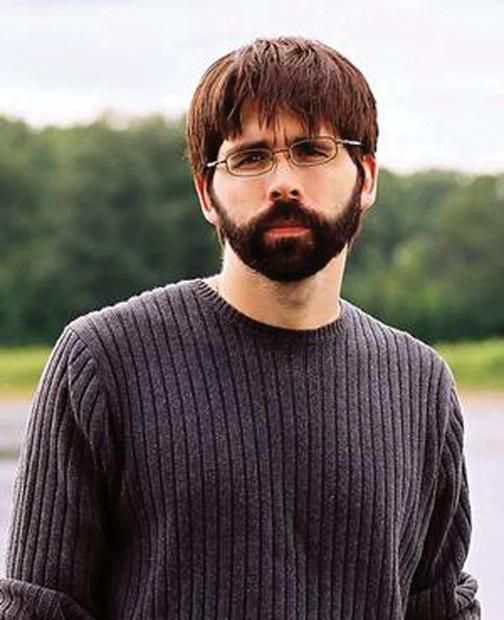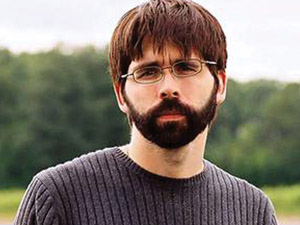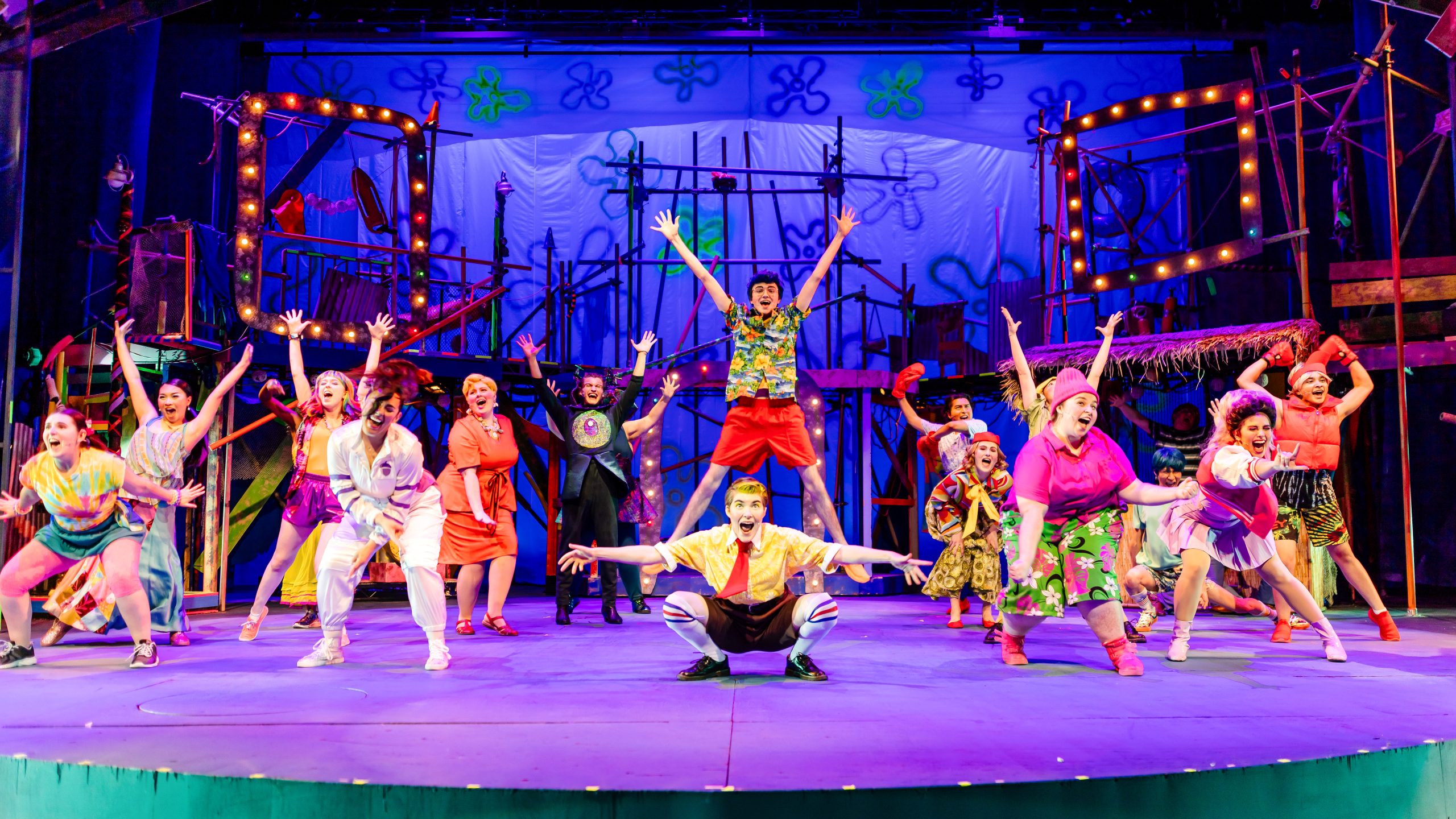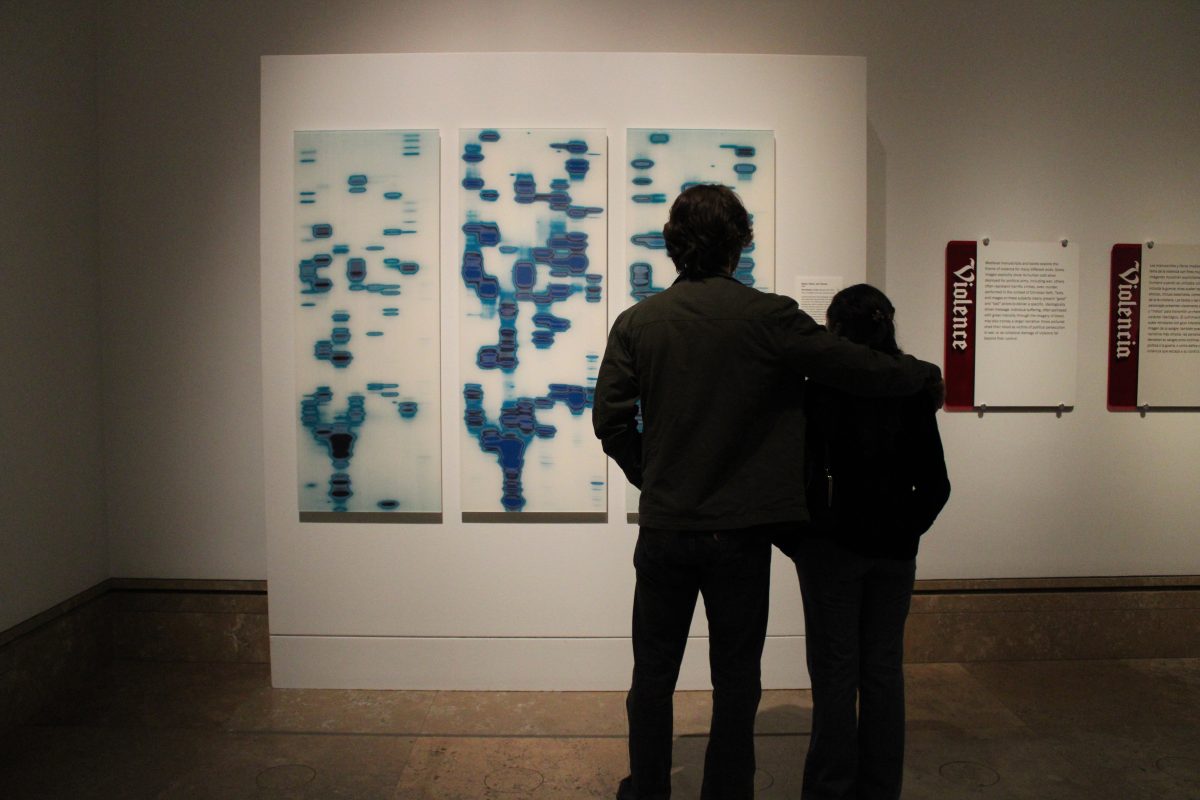Joe Hill wants it to be known he started as a comic-book writer first and then author of many fiction “weird fantasy” novels.
Hill’s recent novel “Horns” is in the current works of being a motion picture, set to be released in 2013. It will be Hill’s first novel turned into a motion picture starring the actor from the “Harry Potter” franchise, Daniel Radcliffe and director of “Piranha,” Alexandre Aja.

He also wrote New York Times bestseller “Heart-Shaped Box”, a comic-book series, “Locke & Key” and a collection of short stories, “20thCentury Ghosts.”
Hill discusses his mad love for horror fantasy, his famous father and what it’s like for an author when they’re work is turned into film.
Daily Sundial:How sick and tired are you hearing, “what’s it like being Stephen King’s son?”
Joe Hill: I think family is one of the subjects that one ever gets tired of. You know? The human animal is built to be interested in the family
unit. So, I understand that people are curious of that particular subject and I’m fairly at ease about it. I did have about a decade to not be Stephen King’s son. When I first started writing–I actually have been writing all through highschool and college–but when I first became serious about my writing, that’s where I felt I wanted to do it for a living and be published. I came to feel writing as Joseph King, having that last name would be something of a disadvantage than an advantage. I felt that there might be an temptation for a publisher to publish work, if the work was that good because they saw a chance to cash in on the last name and that worried me because I wanted to have a long career and I feel like, you know readers might take a chance on you because you have a famous last name one time but if the book is no good they won’t come back for a second help. So, in college I decided to drop the last name and write it “Joe Hill.” I went to fairly elaborate lengths to keep my parents a secret. This was awhile ago. So, back in those days most of my communication were by mail, real mail, not email. I was able to get an agent who worked for me for ten years before he ever found out about my parents and I had a long period of struggle where I was unable to sell much. I wrote three novels I was never able to sell. Including one I spent three years on. This huge epic fantasy novel that was turned down everywhere. It was turned down in America, It was turned down in England, for an extra kick in the pants, it was turned down in Canada. But those were all examples of the pen name working because, you know, the pen name allowed me this wonderful chance to make mistakes in private, which is where your mistakes are suppose to take place and it gave me a chance to learn my craft. When I finally get to sell short stories I was confident I was selling them for the right reasons because editors want the stories not because editors were excited about my family or my last name. They didn’t know. And eventually I was able to get what I wanted.
DS: I like how you recycle your story ideas
JH: Yeah, have you ever seen the TV show “Hoarders”?
DS: Yes
JH: I think when it comes to concept and ideas it pays to be a creative hoarder. It’s important to have a concept that fascinates you to tuck it away––even if you are not able to use it right away but keep it at the back of your mind and put it in a notebook somewhere. It can be used later and could turn out to be just the tool you need to finish a story.
DS: So, going back to your pen name––why the pen name Joe Hill? Is there any relation to the Labor activist?
JH: That’s one question I get a lot but it has a really unsatisfying presently simple answer. You know, when I first started using that name I accomplished several different possible pen names all of which I felt were really cool but you know I have a feeling murcently streek and the one thing that would concern me is how do I cash the check? I assumed I would be ranking it in but it didn’t exactly work that way but I thought well what happens when the check comes and it’s made out to some guy named, Stolen Magruder, where do I cash it? So, I round up writing it as Joe Hill because Hill is my middle name and I was named after––you know my parents were hippies and big fans of Joan Baez and she covered a song called, “I Dreamed I Saw Joe Hill Last Night.” Who was about the fall labor leader who was executed in Salt Lake City In the 30’s. So, that’s where I get the name. It did make cashing checks in easier.
DS: What is it about horror fiction that draws you to write about it?
JH: In college, I was mostly writing the kind of stuff we had learned how to write as undergrads mainly pastiches of Raymond Carver and Tim O’Brien. You know, sort of serious new yorker type stuff usually about divorce, problematic children, suburban wife and just thinking about those stories like I can feel my soul going to sleep. They sound boring, you know––they are not boring when Raymond Carver does it but they are boring when I did it. But after two years of banging around the pen name I gradually discovered this terrific sense of freedom because I was Joe Hill not Joseph King. I could write anything I wanted and I would never be compared to my dad. So, if I had been writing under my own name, and I started to write ghost stories, I don’t think I would have started because I would have felt too self conscious, but no one cared what Joe Hill wrote. So, I could write a story about a skeleton and it would be just out of dumb marriage and I was and still am a big fan of the novelist Bernard Malamud. I read an essay by him that very much impressed me called “Why Fantasy” and in it he argued that all fiction is make-believe and because––that’s the case if you want to write about a talking animal or a ghost or a dragon, there’s no reason you shouldn’t. The tools of fantasy can be very powerful and shortly after I read that essay I wrote a short story called “Pop Art” and “Pop Art” is a story about the friendship between an ordinary kid and an inflatable boy named Arthur Roth. Art is made out of plastic and filled with air and he weighs about six ounces and if he touches a sharpened pencil it would kill him. I had the experience writing that story that I hadn’t had writing almost anything else––it was fun, I had blast writing it––it wasn’t perfect not the first draft. I round up revising it over a dozen times but that was one of the first short stories I sold and really was one of the first things I written as an adult that made me happy. So, after that I started writing more weird stories and before you knew it I had a novel about being on the wants for ghosts.
DS: Would you say short stories led you to be inspired to write about weird fantasy?
JH: I would say growing up in all of my dad’s stories was probably the biggest influence, but only unconsciously and that consionaly my influences are the reasons I round up writing stories of weird fantasy was that essay by Bernard Malamud and also some of Bernard Malamud’s stories, specifically one called the “Jewbird,” which is very like “Pop Art.” A short story writer named Kelly Link was doing interesting things with fantasy, she still is but you know she was doing interesting things about fantasy around then and getting a lot of notice and I liked her stories and so that had a little bit of a pool on me and the other thing is I have always been a lifelong comic book fan and I have somewhat of a comic book imagination. Aside from my mom and dad who both write and arthur Conan doyle of the Sherlock Holmes stories, all my favorite early influences, all my favorite writers when I was a kid were comic book writers––guys like Alan Moore, NeilGaiman, Frank Miller and Chris Claremont. So, a lot of the things I learned about story at an impressionable age were the things that were being taught the comic books of the late 80’s and early 90’s. Something was kind of inventable of writing about unlikely characters doing unlikely things.
DS: Do you enjoy comic book writing more than novel writing? Since, you wrote the comic book series “Locke & Key.”
JH: Yes, I am very close to finishing the “Locke & Key” series, which in the end will run almost 40 issues. There isn’t one that I like more than the other. I was a comic book writer before I was a novelist. As I said, I had written three novels that I couldn’t sell and I wasn’t depressed about it exactly but I came to feel I didn’t have the skills to write a novel, as much as I wanted it but I had learned to write short stories and I had begun to collect to notice my short stories. I felt I knew how to write a short story and that I could write a short story well and around that time Marvel comics were running a r program where they were pulling in writers from other fields––playwrights, poets, bloggers and short story writers and that woman at Marvel comics read my short story “20th Century Ghost” and she invited me to write a story for Spider Man Unlimited and so I did. It was the most exciting job I have ever been offered. I wound up writing an 11 page Spider Man story and it was actually published a little bit before my novel. So, that was my biggest break before “Heart-Shaped Box” came out. I don’t prefer writing novels to comics and I don’t prefer comics to novels but if you asked me I would probably define myself as a comic book writer first and a novelist second. Whereas most of my readers would call me a novelist first and a comic book writer second, which is a little strange.
DS: I know your recent novel “Horns” is currently being made into a motion picture. So, How do you feel when your story has had changes made to it for the films sake?
JH: Well I never had anything made into a film before although “Locke & Key” was filmed as a pilot for FOX, they were going to do a TV show out of that and the pilot came out great but with a new show on TV it is like musical chairs. They will produce six pilots and then there’s only three seats and we got left without a chair. So, there might be a happy ending after all because now some people are looking into making “Locke & Key” into a movie. So, that could be interesting but in this case “Horns,” I’ve never had anything adapted before, this is the first experience for me and thrill if it were ever to happen again. So, I am kind of just learning you know? My idea is to sort of––mostly keep quiet and see what I can absorb about the experience and then apply that to some point in the future. I am very accepting of the idea that a book is one thing and a film is another. One way to fail with a film is to be eager––a couple ways to fail, you can either be too faithful or not faithful enough. If you’re too faithful you can wind up with a movie that is just kind of dead on the screen because the director was too in love with the words and didn’t know how to break free from the novelist vision and so something fresh and original but on its own terms. And of course the disaster is when someone buys a book and decides to make a film out of it, by the time the film comes out it bares no resemblance to the novel whatsoever, except for the title. In this case, I am excited about Alexandre Aja and Daniel Radcliffe are doing––they’ve got something which is very faithful to the spirit of the novel and in many ways they stay close to the novel but in other ways it has the freedom to be its own thing. They are some nice moments that are just in the film and not in the book––there’s the element of the approach––their approach to it is a little bit different but the underline of the spirit is the same. So, hopefully you’ll get lucky––hopefully you’ll wind up with something people will really enjoy. I think that Daniel Radcliffe in particular––in just in terms of picking material has a good sensibility. He’s a real smart young guy and he’s a reader. Sometimes I think you know the difference between an actor who has a long career and an actor who has a less successful one is––not the difference in talent but the question of whether or not they can tell good material from bad.
DS: Your comic series, “Locke & Key” is very cinematic. Do you think you can also be a screenwriter?
JH: One of my idols is Neil Gaiman who has written comics, novels, short stories, poems of all kinds, and screenplays. I think that Neil Gaimen is the perfect modern writer, and part of what defines his skill is his ability to work in almost any form with comfort. I’ve always wanted to do that too. I have always wanted to write short stories, and comic books, and novels, and poems and screenplays.
Nevertheless I am more cautious about screenwriting than any other form. The money is good, but the creative satisfaction is not. I’ve seen a lot of novelists write one great novel and then jump into the film business and they disappear. It’s not that they weren’t doing anything; it’s that they wrote script after script that they got paid for, but the scripts never got filmed. I am kind of selfish. If I work for half a year on something, I want people to know about it. So for me, it’s more satisfying to take a film idea and make it into a comic, and then maybe someone will make a film. Nevertheless, at some point in my life I would like to be a part of a script writing team for an ongoing TV show. I like episodic storytelling, and I think that would be a fun and interesting challenge, and I like the idea of being a part of a team.
DS: Can you give me a quick rundown of your next novel coming out in April 2013 NOS4A2?
JH: The next book is called NOS4A2, it’s a vanity license plate. It’s the bad guys vanity license plate and if you sound it out it is nosferatu, which is the german word for vampire and my bad guy Charlie Manx in the book he is something of a vampire himself but a different sort of vampire. He doesn’t drink blood––he doesn’t have fangs but he is a bad ole’ boy. It really is a story about a bad man with a bad car.






